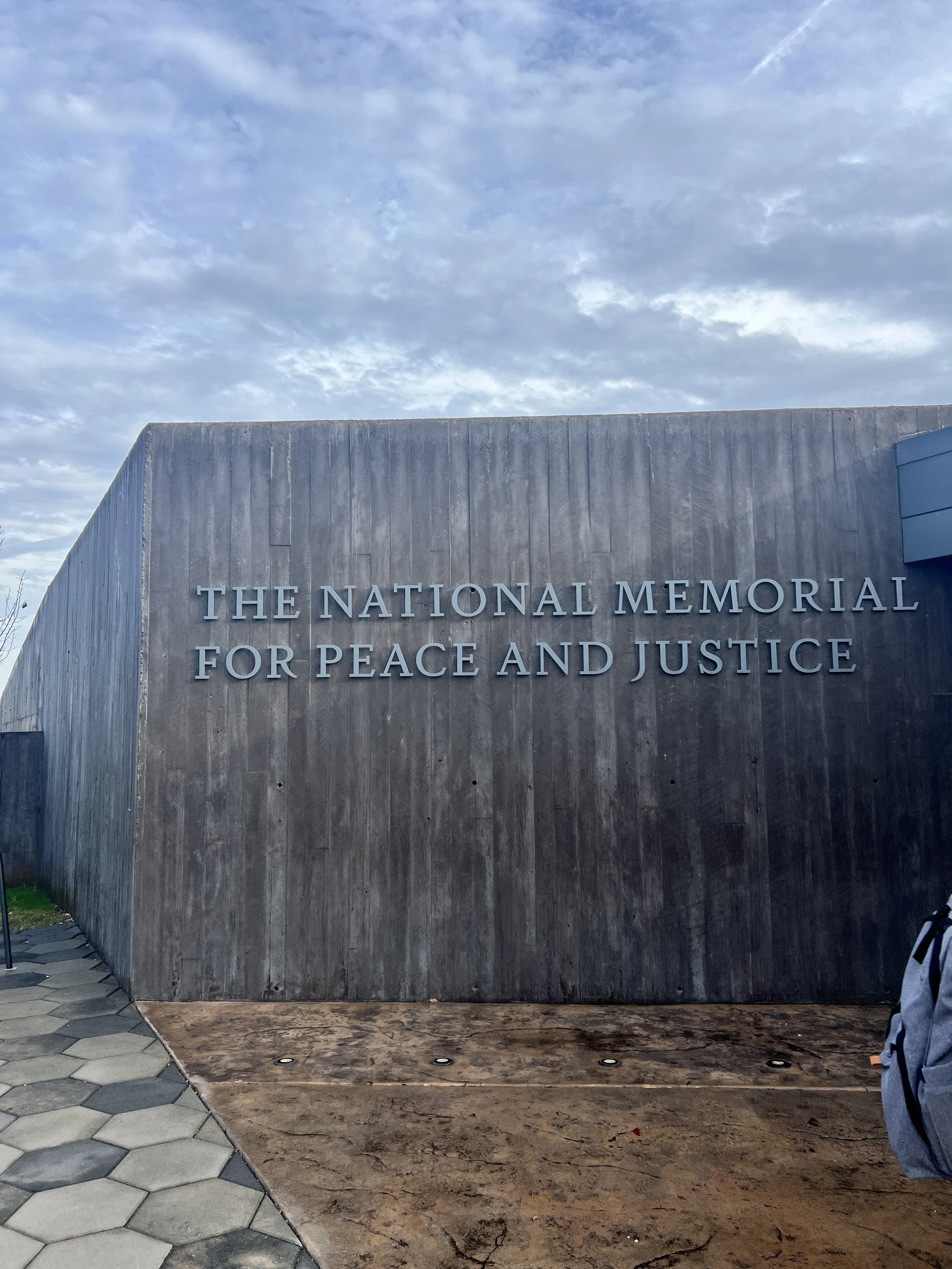
Equal Justice Initiative
The Equal Justice Initiative, based in Montgomery, Alabama, is committed to ending mass incarceration and excessive punishment in the United States, to challenging racial and economic injustice, and to protecting basic human rights for the most vulnerable people in American society.
Founded in 1989 by Bryan Stevenson, a widely acclaimed public interest lawyer and bestselling author of Just Mercy, EJI is a private, 501(c)(3) nonprofit organization that provides legal representation to people who have been illegally convicted, unfairly sentenced, or abused in state jails and prisons. EJI challenges the death penalty and excessive punishment and provides re-entry assistance to formerly incarcerated people.
—
In Montgomery, Alabama, the Equal Justice Initiative (EJI) has built The National Memorial for Peace and Justice. It memorializes lynching victims all over the United States. In the memorial, there is a hanging column for each county inscribed with the names of the lynching victims in that county. A field outside is filled with identical columns. The goal is to guide communities with documented lynchings through the reconciliation process by collecting a jar of soil from the lynching site. The jars are then put in the EJI Museum, and the community moves the column from the museum to a place in their county.
-

Legacy Museum & The National Memorial for Peace and Justice
In Montgomery, Alabama, the Equal Justice Initiative hosts three legacy sites dedicated to the victims of racial terrorism and lynchings. Learn more about these sites and plan your own visit below.
-

Learn.
Learn more about the history of racial terrorism and lynching in America, along with the legacy sites hosted by EJI with their informative video series.
-

Community Remembrance Project
EJI invites communities from across the country to remember and honor those who have been killed and terrorized by racial violence. EJI has compiled a series of resources to help organize meaningful community engagement.

Community Remembrance Project
80+
Historical markers have been installed in local communities since 2015.
700
Communities have collected soil from sites of racial terror lynchings.
One of EJI’s key initiatives is the Community Remembrance Project. EJI supports efforts to locally memorialize documented victims of racial violence and to educate communities about the history of racial injustice. EJI works with communities to install historical markers that acknowledge lynchings. A lynching is an extrajudicial murder of a community member.
EJI also believes it is critical for communities across the country to do the difficult work of unearthing and confronting their own histories of racial injustice, while exploring how that history continues to shape the present. EJI is honored to support community memorialization work through the Community Remembrance Project, which is organized at the county level. A meaningful aspect of this work is the opportunity for individuals to connect with members of their local community and to examine personal connections to the legacies of racial terror. EJI believes this is most impactful when done locally, allowing participants to look beyond their immediate community ties, while exploring local connections to the narratives of racial terror lynching.
EJI’s Community Remembrance Project supports local coalitions in their efforts to memorialize documented victims of racial violence throughout history. The Historical Marker Project erects narrative markers in public locations describing the devastating violence, today widely unknown, that once took place in these locations. Since 2015, the Community Remembrance Project has supported local communities across the country to install more than 80 historical markers, collect soil from approximately 700 locations where racial terror lynchings took place, and judge Racial Justice Essay entries for over 900 high school students. In August 2024, a marker to George Taylor, who was lynched near Rolesville, Wake County, NC on November 5, 1918, was erected at Rolesville Town Park.


